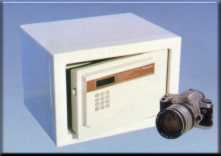
News, Opinion & NETcessities
|
The Front Page Washington
Times The Best of the Net WSJ Opinion Journal Daily Read. World editorial summary. |
|
Published on Wednesday,
February 18, 1970 John Kerry: A Navy Dove Runs for Congress Crimson Staff Writer EXCERPTED Hundreds of opponents to the Vietnam War will meet this coming Saturday in a Third District Citizens Caucus to choose a Democrat strong enough in the September primary to oust Philip J. Philbin (D-Mass.) from the Congressional seat he has held for 26 years. The leading contenders for the caucus's nomination are Father Robert F. Drinan, dean of the Boston College Law School; Harrison Chandler Stevens, who ran as an Independent against Philbin in 1968 and enjoyed the support of many college volunteers; and John F. Kerry, who favors immediate withdrawal, and was the first Vietnam veteran to run for Congress with a dovish platform on the War. Kerry has the most explicit stand against the Vietnam War and although his youth is a plus, the fact that he is a political unknown does not help him. Now 26, he was honorably discharged from the Navy last month but has been laying the groundwork for the race ever since November. Occasionally, Kerry makes obvious his recent return to civilian life and the Third Congressional District. When he came into the CRIMSON building last Friday, I introduced myself, saying I was from Waban. "Waban, where's that?" he asked. At Yale, Kerry was chairman of the Political Union and later, as Commencement speaker, urged the United States to withdraw from Vietnam and to scale down foreign military operations. And this was way back in 1966. When he approached his draft board for permission to study for a
year in Paris, the draft board refused and Kerry decided to enlist
in the Navy. The Navy assigned him to the USS Gridley which
between December 1966 and July 1968 saw four months of action off
the Vietnam coast. In August through November, 1968, Kerry was
trained to be the skipper of a patrol boat for Vietnamese rivers.
For the next five months, until April of 1969, Kerry was the
commanding Lieutenant of a patrol boat in the Mekong Delta. He was
wounded slightly on three different occasions and received a Silver
Star for bravery. His patrol boat took part in Operation Sealords,
mostly scouting out Viet Cong villages and transporting South
Vietnamese marines to various destinations up and down narrow rivers
covered with heavy foliage on either side. One time Kerry was
ordered to destroy a Viet Cong village but disobeyed orders and
suggested that the Navy Command simply send in a Psychological
Warfare team to be friend the villagers with food, hospital
supplies, and better educational facilities. In America, "everybody who's against the war is suddenly considered anti-American," Kerry said. "But I don't think they can turn to me and say I don't know what's going on or I'm a draft dodger." Referring to the House Armed Services Committee, chaired by L. Mendel Rivers (D-S.C.), Kerry said, "I want to go down to Washington and confront Medel Rivers, who never fought in a war. "I as effectively as anyone else in the country, can address myself to the issue of Vietnam," Kerry said. "I'm very realistic, though. I'm just going to be one man adding to the work of men like Lowenstein." Kerry is a pilot, and on October 14 and 15 he flew Ted Kennedy's advisor Adam Walinsky by private plane throughout the State of New York so that Walinsky could give speeches against the Vietnam War. But Kerry was smart enough not to put down "Moratorium" on the Navy signout sheet for that Tuesday and Wednesday. The following month, Kerry was sick and did not engage in the November moratorium activities. He supports a volunteer Army, "if and only if we can create the controls for it. You're going to have to prepare for the possibility of a national emergency, however." Kerry said that the United Nations should have control over most of our foreign military operations. "I'm an internationalist. I'd like to see our troops dispersed through the world only at the directive of the United Nations." On other issues, Kerry wants "to almost eliminate CIA
activity. The CIA is fighting its own war in Laos and nobody seems
to care." He also favors a negative income tax and keeping
unemployment at a very low level, "even if it means selective
economic controls." Kerry's interest in politics began in 1960, when John Kennedy was running for President. Kerry gave his first political speeches for JFK and at St. Paul's founded a political group, the John Winant Society. In the summer of 1962, Kerry worked for Ted Kennedy, who was then making his first Senate bid. "I wanted to see how the political machine works." Article excerpted
|
|||||||||
News
Fox News
CNN
Roll Call
Drudge
Report
Newsday
New York
Post
Sacramento
Bee
International
China
Daily
Intl
Herald Tribune
UK
Telegraph
SMH
Australia
Opinion
George Will
Cal
Thomas
Walter Williams
W.F.
Buckley, Jr.
Hugh
Hewitt
Joe
Conason
Russell
Betts
National Review
New Republic
Bob Novak
Robert
Paul Reyes
Bill
Press New
Moly
Ivins
Krauthammer
FreeRepublic
Consortium
News
Meet
the Press
See
all the news of the day and NETcessities at our main
index
Opinion, World News, Multiple Search, Weather in Your Town.
News
Fox News
CNN
Roll Call
Drudge
Report
Newsday
New York
Post
Sacramento
Bee
International
China
Daily
Intl
Herald Tribune
UK
Telegraph
SMH
Australia
Opinion
George Will
Cal
Thomas
Walter Williams
W.F.
Buckley, Jr.
Hugh
Hewitt
Joe
Conason
Russell
Betts
National Review
New Republic
Bob Novak
Robert
Paul Reyes
Bill
Press New
Moly
Ivins
Krauthammer
FreeRepublic
Consortium
News
Meet
the Press
See
all the news of the day and NETcessities at our main
index
Opinion, World News, Multiple Search, Weather in Your Town.
News
Fox News
CNN
Roll Call
Drudge
Report
Newsday
New York
Post
Sacramento
Bee
International
China
Daily
Intl
Herald Tribune
UK
Telegraph
SMH
Australia
Opinion
George Will
Cal
Thomas
Walter Williams
W.F.
Buckley, Jr.
Hugh
Hewitt
Joe
Conason
Russell
Betts
National Review
New Republic
Bob Novak
Robert
Paul Reyes
Bill
Press New
Moly
Ivins
Krauthammer
FreeRepublic
Consortium
News
Meet
the Press
See
all the news of the day and NETcessities at our main
index
Opinion, World News, Multiple Search, Weather in Your Town.
Fully electronic home security safe is pin-code activated. You set the code. Change it as often as you like. Protect documents from prying eyes.
|

